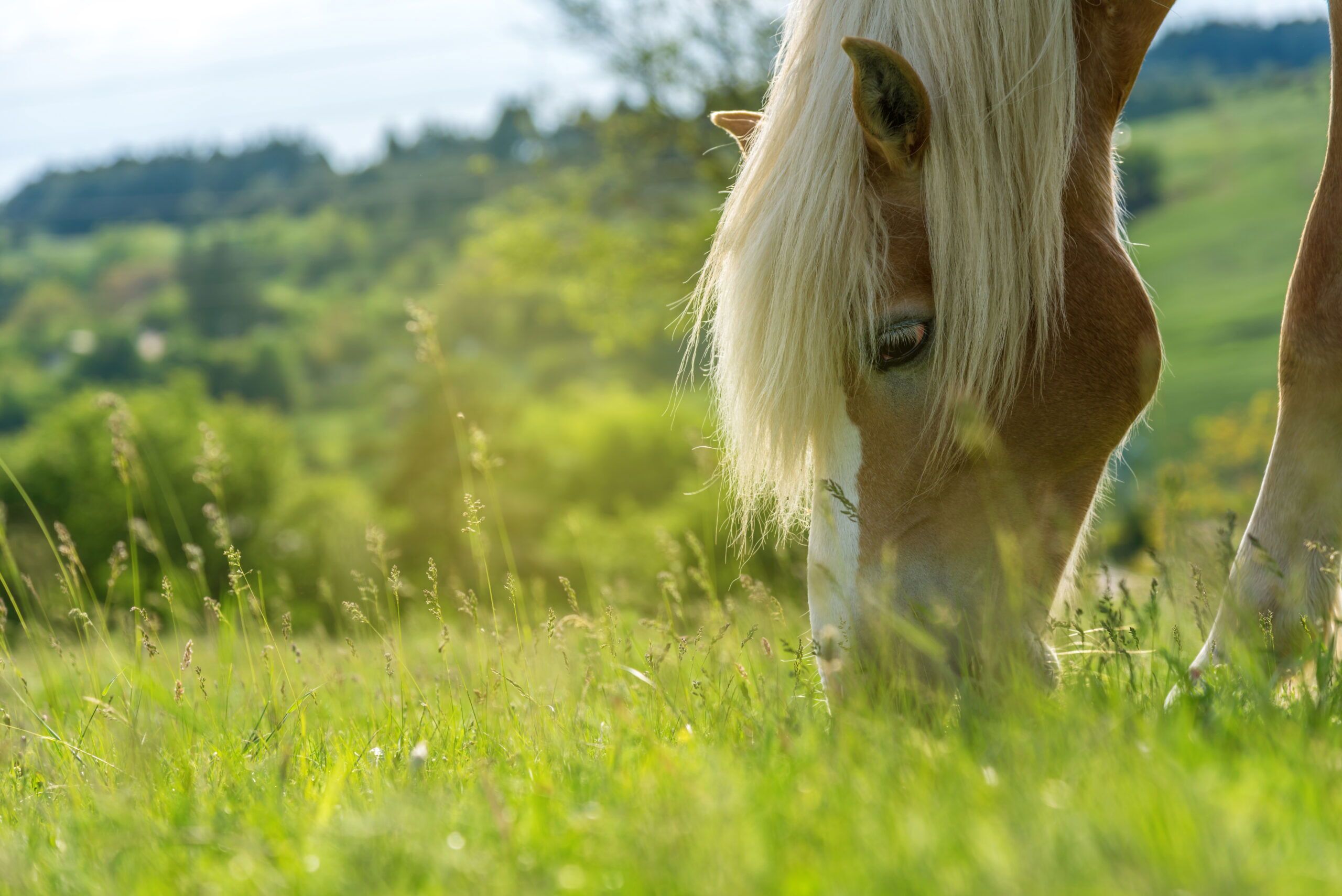Spring is coming! This means that the horses can go out to pasture more often. But beware: the transition from stable to pasture means a change in the diet. The grass in spring is young, fresh and rich in nutrients, including fructan. Fructan is a natural source of energy produced by grass. For healthy horses, a normal amount is not a problem. But for horses that are sensitive to sugar, too much fructan can have unpleasant consequences. This blog tells you what to look out for when your horse goes back to pasture.
What is fructan?
Just like humans and animals, plants get energy from sugars. These are created by photosynthesis in which the plant converts sunlight, water and carbon dioxide into sugars. Depending on the type of plant, these sugars are stored as starch or fructan. In most meadow grasses, the energy is stored in the form of fructan.
The grass plant uses fructan to grow. This means that the fructan content varies greatly depending on the growing season and climate. Sunlight is necessary for the production of fructan. So on sunny days, a lot of fructan is produced, with peak values in the late afternoon.
At night, the grass consumes these fructans to grow, but only if the temperature remains above 4-5°C. The problem with fructan mainly arises during periods when the plant does not grow sufficiently and the fructan content therefore accumulates. This mainly happens during periods when it is sunny during the day but cold at night (< 4-5 °C), such as early spring and late autumn.
How do you prevent a high fructan content in the grass?
Fructan mainly accumulates in the lower part of the grass plant, just above the soil. Short grass due to overgrazing or mowing too short can therefore contain high levels of fructan. Regular mowing at the right height helps to stimulate growth and keep fructan levels low. Also beware of drought: If there is a lack of water, the grass grows less and the fructan content can increase.
Why is too much fructan a problem?
For healthy horses, a normal amount of fructan is not a problem. But for horses prone to intestinal or metabolic problems, too much fructan can be dangerous. Fructan is not digested in the small intestine, so it flows through to the large intestine where it is fermented by bacteria. A by-product of this is lactic acid. Large amounts of lactic acid lower the pH of the colon. This causes all kinds of problems that are mainly harmful to healthy bacteria. A disrupted microbial flora leads to reduced production of healthy nutrients such as volatile fatty acids, an increase in the release of harmful substances and increased permeability of the intestinal wall. This allows toxins to enter the body, leading to acute immune reactions and metabolic problems. Clinical consequences of too much fructan are often colic, diarrhea and laminitis.
Fructan is not dangerous in a normal amount
When is the best time for sugar-sensitive horses to go outside?
The best time to graze sensitive horses depends on the temperature.
If the night temperature does not fall below 4-5 °C, the grass consumes fructan at night and the content is lowest in the morning. It is therefore safer to let sensitive horses out to pasture in the morning. (Figure 1)
If the night temperature does drop below 4-5 °C, the sugar content remains high. During this period, it is safer not to put sensitive horses out to pasture. A sand paddock is a better alternative. (Figure 2)
Build up carefully
The transition from barn to pasture should always be gradual. Only put your horse outside for short periods in the beginning and build up slowly. For horses that are sensitive to fructan, it is extra important to graze at the right time, when the fructan content in the grass is low.
Good pasture management and a well-thought-out approach will ensure your horse enjoys the spring grass healthily and safely!


